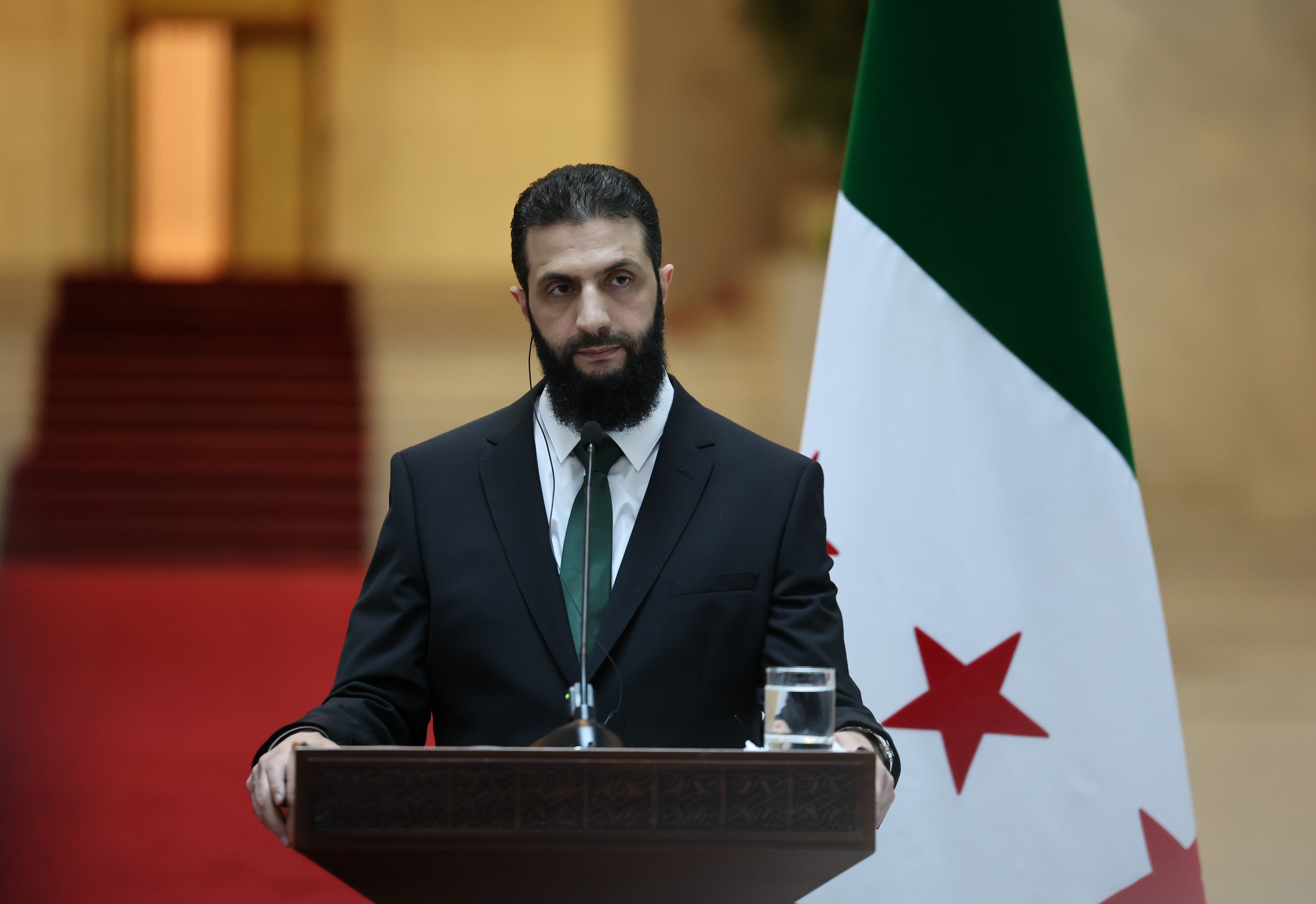
Syria’s new de facto leader, headed by Ahmed al-Sharaa, has firmly stated that the country will not become a staging ground for attacks by the PKK/YPG while outlining a political roadmap that includes potential elections in four years.
In an interview with Saudi Arabia's Al Arabiya television, Shara addressed the nation's ongoing challenges, the transition to constitutional governance, and future elections.
Al-Sharaa emphasized that Syria will not allow the PKK to use its territory as a launchpad for attacks. He underscored that the Kurdish population remains an integral part of Syria and asserted that national unity would be preserved.
Discussing ongoing negotiations with the group operating under the YPG banner, al-Sharaa revealed efforts to resolve the northeastern crisis and integrate these armed groups into the Syrian military structure.
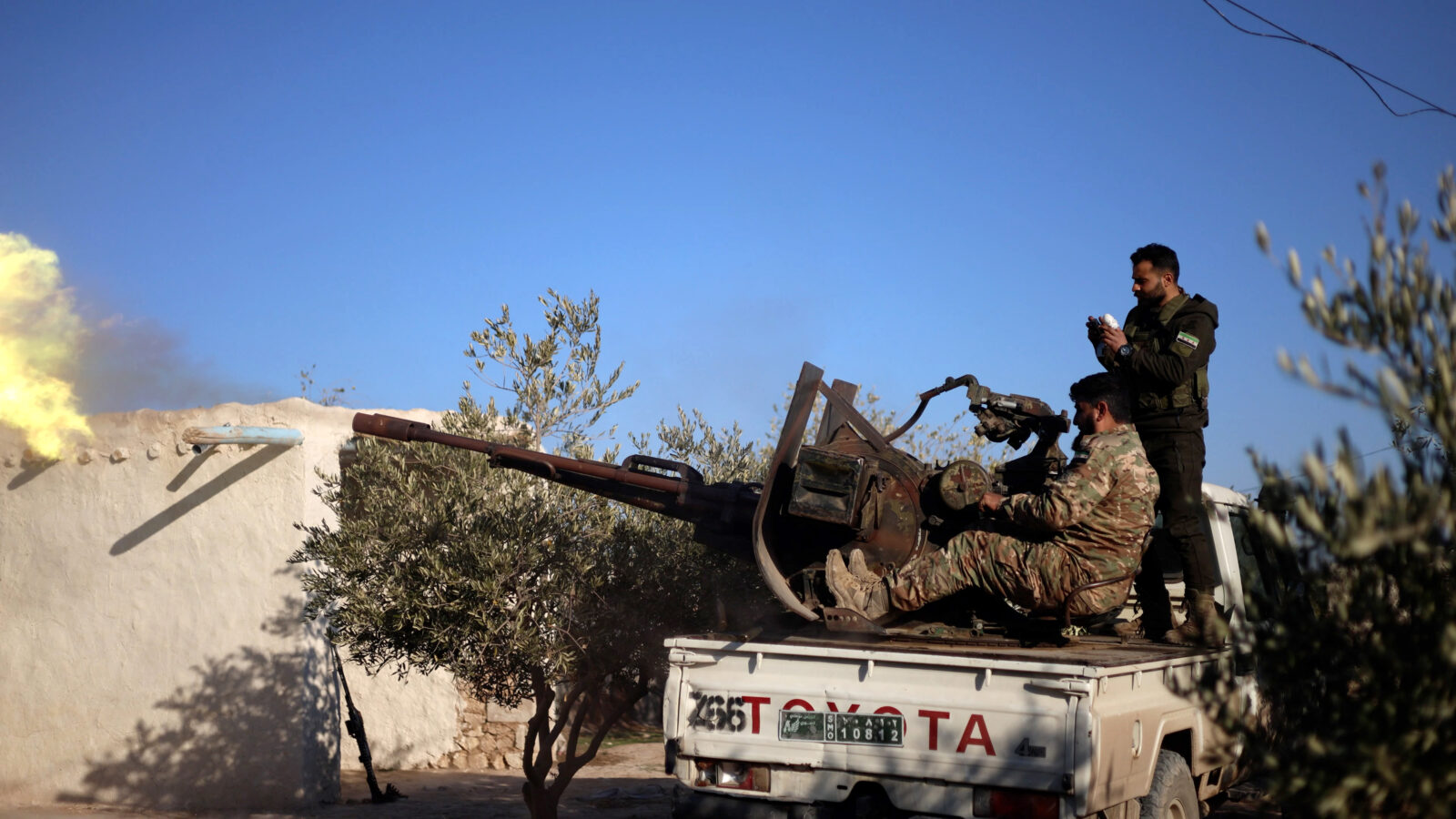
Ahmed al-Sharaa stated that drafting a new constitution could take up to three years, with elections potentially being held within four years. He highlighted the importance of conducting a comprehensive census to ensure fair and transparent elections.
The leader expressed confidence that a stable and self-sufficient Syria would contribute to regional stability over the next five decades.
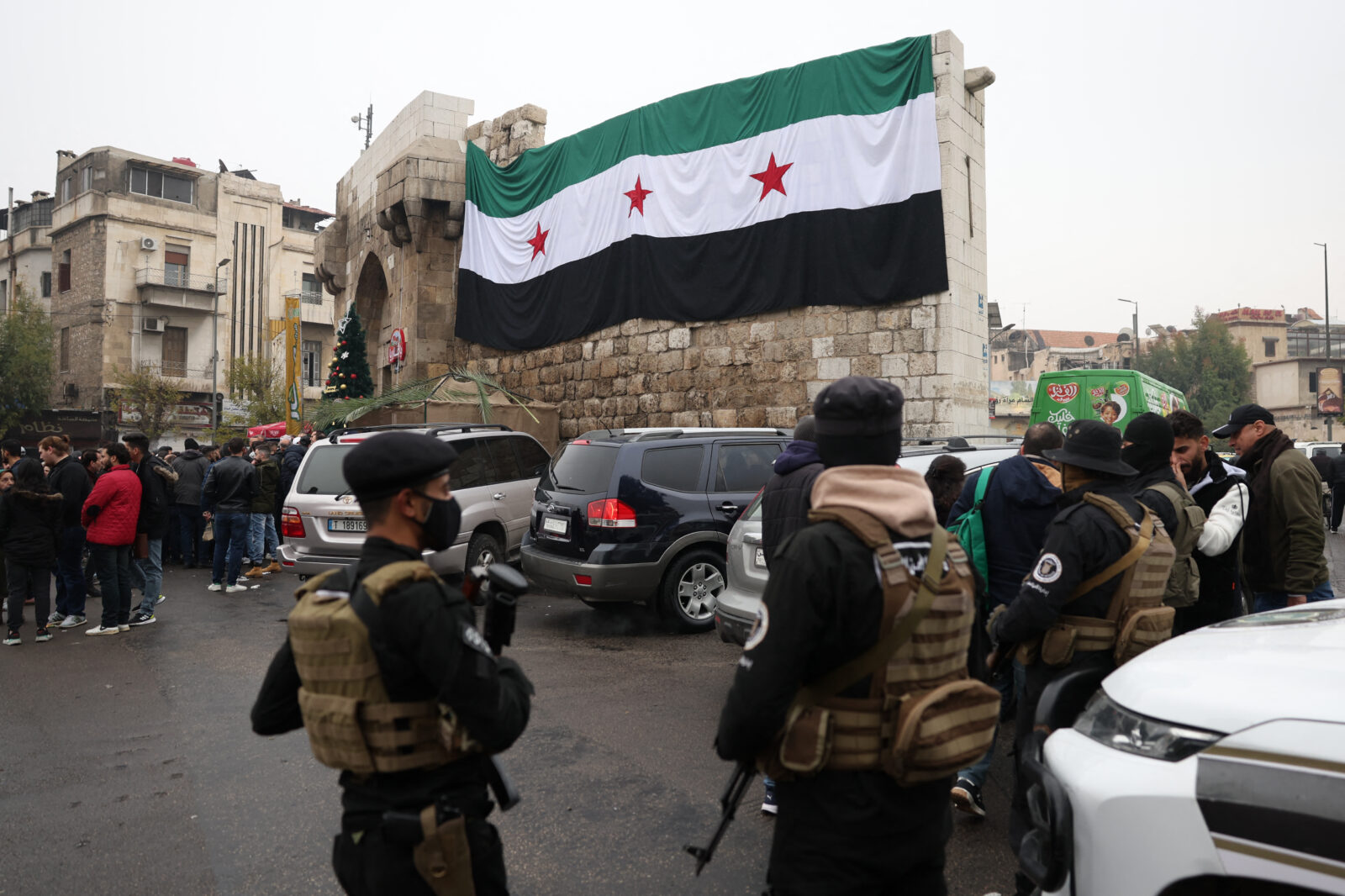
Ahmed al-Sharaa stressed the importance of smooth governance during the transition period. He noted that unified appointments to government institutions are essential for operational harmony and reiterated that all criminals would be held accountable under the law.
He also addressed the militant group Hayat Tahrir al-Sham (HTS), stating that it would be officially disbanded, with this decision expected to be announced during an upcoming National Dialogue Conference.
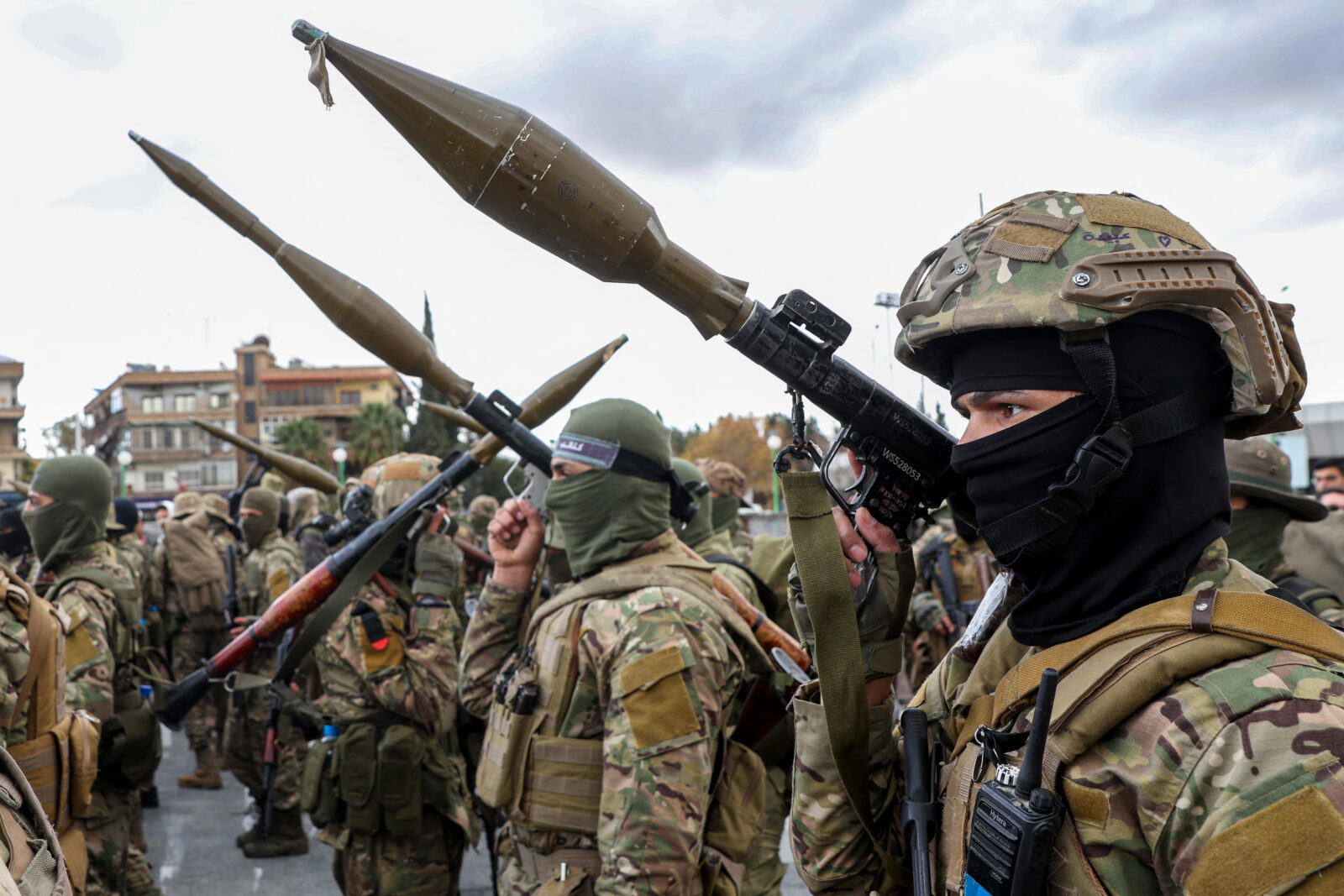
On international relations, Shara called on the United States to lift economic sanctions on Syria and urged Iran to reassess its regional interventions.
He acknowledged the strategic importance of Russia's presence in Syria and expressed a desire for Moscow to manage its exit in a way that aligns with its historical ties to Damascus.
Shara also remarked on the shifting geopolitical dynamics following the fall of the previous regime, noting that Iran had lost a key regional ally and a vital supply corridor to Hezbollah.
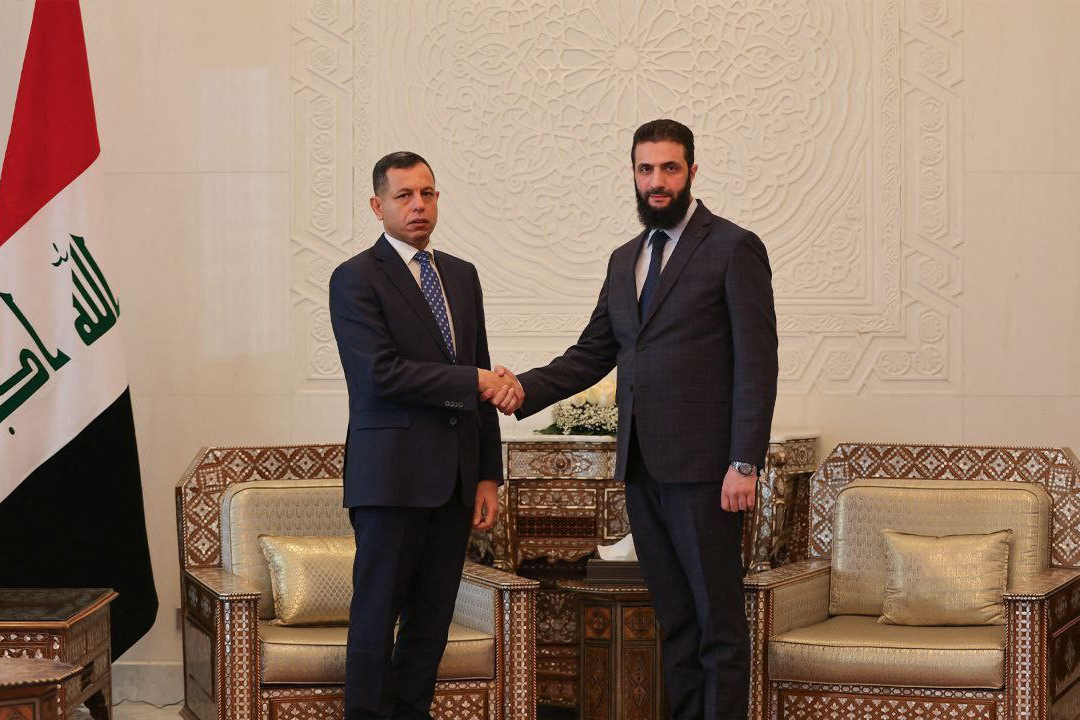 A handout picture released by the official Syrian Arab News Agency (SANA) shows the country's new leader and Hayat Tahrir al-Sham (HTS) chief Ahmed al-Sharaa (R), formerly known as Abu Mohammed al-Jolani, welcoming Bahrain?s Sheikh Ahmed bin Abdulaziz al-Khalifa ahead of their meeting in Damascus on December 28, 2024. (Photo by SANA / AFP) / == RESTRICTED TO EDITORIAL USE - MANDATORY CREDIT "AFP PHOTO / HO / SANA" - NO MARKETING NO ADVERTISING CAMPAIGNS - DISTRIBUTED AS A SERVICE TO CLIENTS ==
A handout picture released by the official Syrian Arab News Agency (SANA) shows the country's new leader and Hayat Tahrir al-Sham (HTS) chief Ahmed al-Sharaa (R), formerly known as Abu Mohammed al-Jolani, welcoming Bahrain?s Sheikh Ahmed bin Abdulaziz al-Khalifa ahead of their meeting in Damascus on December 28, 2024. (Photo by SANA / AFP) / == RESTRICTED TO EDITORIAL USE - MANDATORY CREDIT "AFP PHOTO / HO / SANA" - NO MARKETING NO ADVERTISING CAMPAIGNS - DISTRIBUTED AS A SERVICE TO CLIENTS ==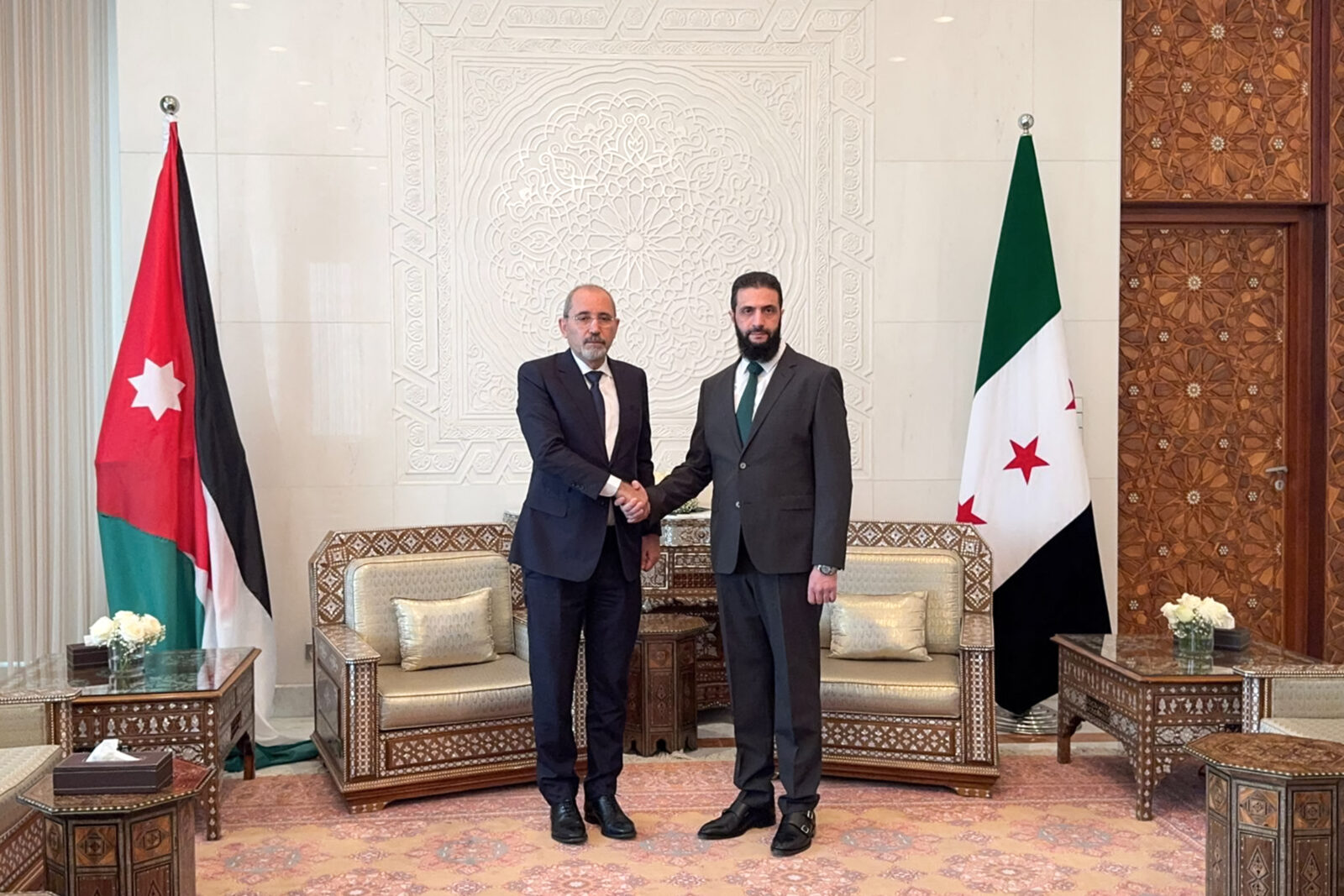 The handout picture released by the Jordanian Foreign Ministry shows Jordan's Foreign Minister Ayman Safadi (L) being received by Hayat Tahrir al-Sham (HTS) leader Ahmed al-Sharaa (also known as Abu Mohammad al-Jolani) in Damascus on December 23, 2024. (Photo by Jordanian Foreign Ministry / AFP) / RESTRICTED TO EDITORIAL USE - MANDATORY CREDIT "AFP PHOTO / JORDANIAN FOREIGN MINISTRY" - NO MARKETING NO ADVERTISING CAMPAIGNS - DISTRIBUTED AS A SERVICE TO CLIENTS
The handout picture released by the Jordanian Foreign Ministry shows Jordan's Foreign Minister Ayman Safadi (L) being received by Hayat Tahrir al-Sham (HTS) leader Ahmed al-Sharaa (also known as Abu Mohammad al-Jolani) in Damascus on December 23, 2024. (Photo by Jordanian Foreign Ministry / AFP) / RESTRICTED TO EDITORIAL USE - MANDATORY CREDIT "AFP PHOTO / JORDANIAN FOREIGN MINISTRY" - NO MARKETING NO ADVERTISING CAMPAIGNS - DISTRIBUTED AS A SERVICE TO CLIENTS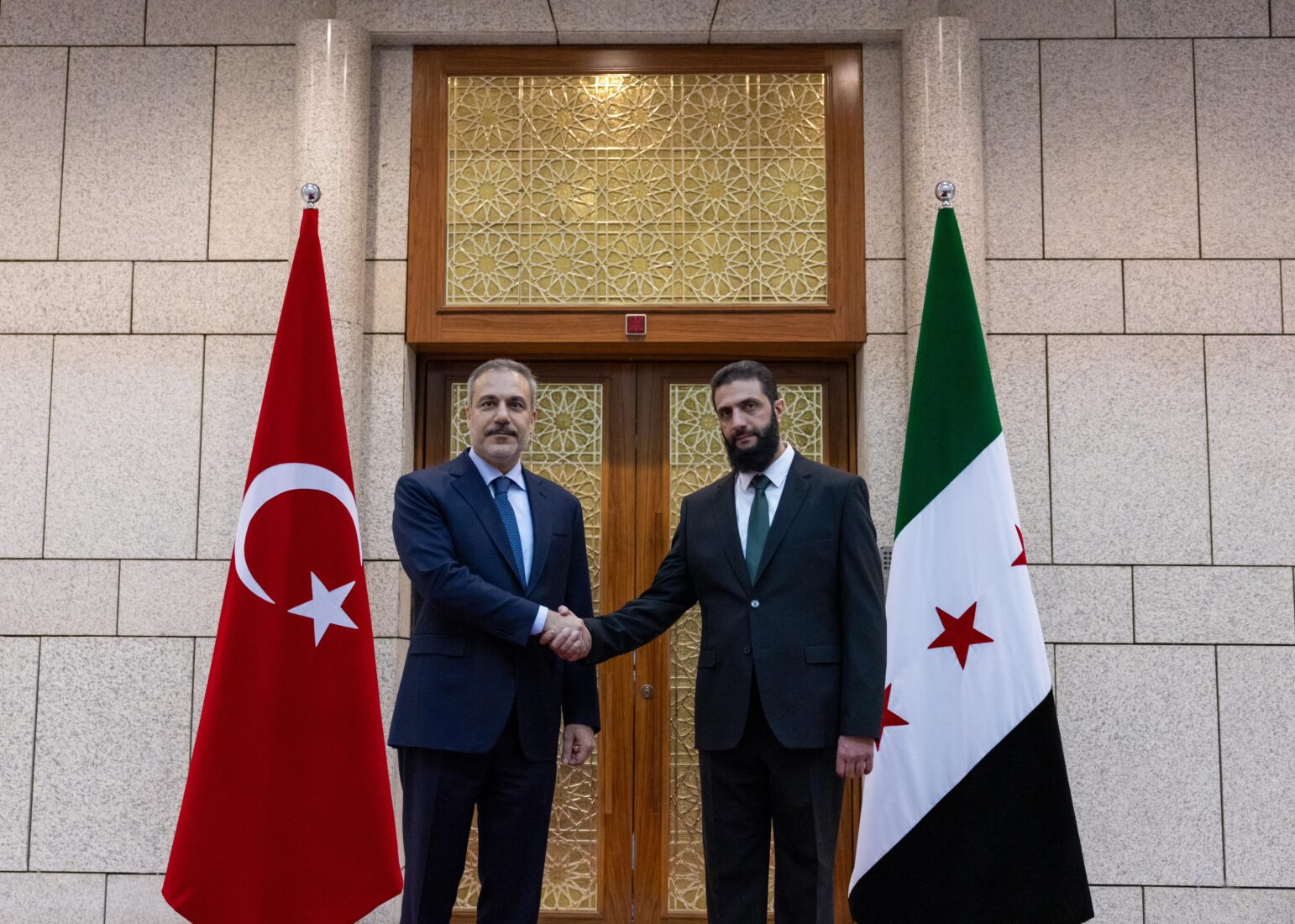 Turkish Foreign Minister Hakan Fidan meets the leader of Hayat Tahrir al-Sham (HTS), Ahmed al-Sharaa, also known as Abu Mohammad al-Jolani in Damascus, Syria on Dec. 22, 2024. (AA Photo)" alt="Syria's new de facto leader Ahmed al-Sharaa vows to prevent PKK/YPG stronghold">
Turkish Foreign Minister Hakan Fidan meets the leader of Hayat Tahrir al-Sham (HTS), Ahmed al-Sharaa, also known as Abu Mohammad al-Jolani in Damascus, Syria on Dec. 22, 2024. (AA Photo)" alt="Syria's new de facto leader Ahmed al-Sharaa vows to prevent PKK/YPG stronghold">
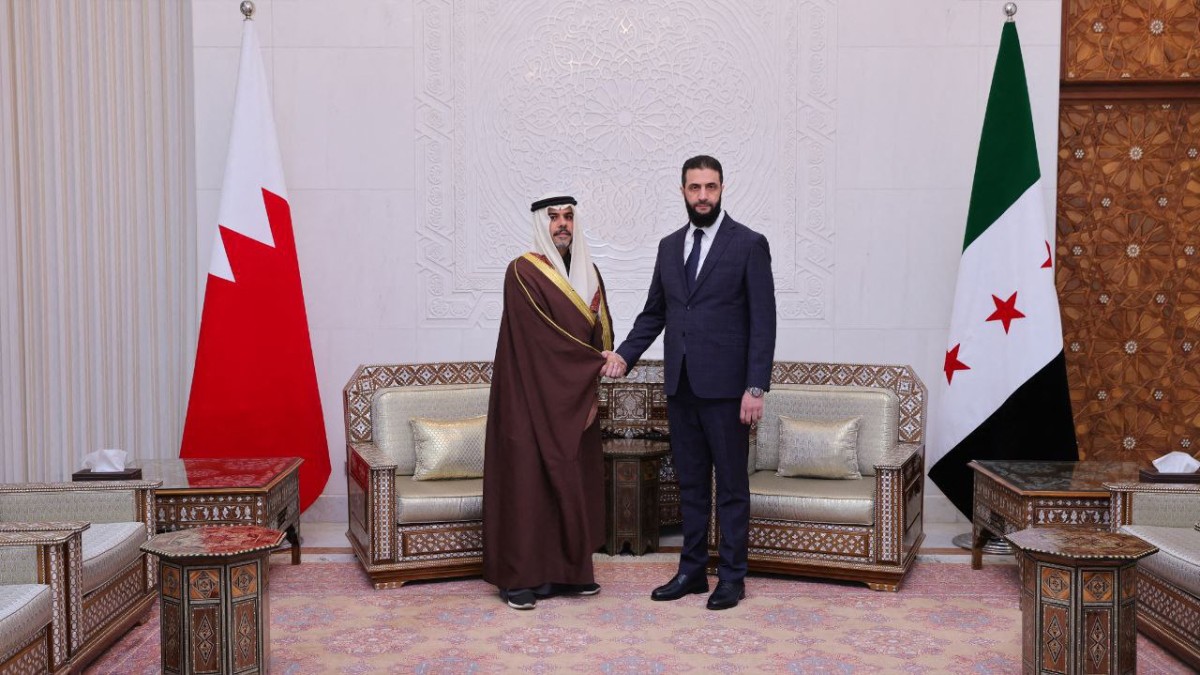 A handout picture released by the official Syrian Arab News Agency (SANA) shows the country's new leader and Hayat Tahrir al-Sham (HTS) chief Ahmed al-Sharaa (R), formerly known as Abu Mohammed al-Jolani, welcoming Bahrain?s Sheikh Ahmed bin Abdulaziz al-Khalifa ahead of their meeting in Damascus on December 28, 2024. (Photo by SANA / AFP) / == RESTRICTED TO EDITORIAL USE - MANDATORY CREDIT "AFP PHOTO / HO / SANA" - NO MARKETING NO ADVERTISING CAMPAIGNS - DISTRIBUTED AS A SERVICE TO CLIENTS ==
A handout picture released by the official Syrian Arab News Agency (SANA) shows the country's new leader and Hayat Tahrir al-Sham (HTS) chief Ahmed al-Sharaa (R), formerly known as Abu Mohammed al-Jolani, welcoming Bahrain?s Sheikh Ahmed bin Abdulaziz al-Khalifa ahead of their meeting in Damascus on December 28, 2024. (Photo by SANA / AFP) / == RESTRICTED TO EDITORIAL USE - MANDATORY CREDIT "AFP PHOTO / HO / SANA" - NO MARKETING NO ADVERTISING CAMPAIGNS - DISTRIBUTED AS A SERVICE TO CLIENTS == The handout picture released by the Jordanian Foreign Ministry shows Jordan's Foreign Minister Ayman Safadi (L) being received by Hayat Tahrir al-Sham (HTS) leader Ahmed al-Sharaa (also known as Abu Mohammad al-Jolani) in Damascus on December 23, 2024. (Photo by Jordanian Foreign Ministry / AFP) / RESTRICTED TO EDITORIAL USE - MANDATORY CREDIT "AFP PHOTO / JORDANIAN FOREIGN MINISTRY" - NO MARKETING NO ADVERTISING CAMPAIGNS - DISTRIBUTED AS A SERVICE TO CLIENTS
The handout picture released by the Jordanian Foreign Ministry shows Jordan's Foreign Minister Ayman Safadi (L) being received by Hayat Tahrir al-Sham (HTS) leader Ahmed al-Sharaa (also known as Abu Mohammad al-Jolani) in Damascus on December 23, 2024. (Photo by Jordanian Foreign Ministry / AFP) / RESTRICTED TO EDITORIAL USE - MANDATORY CREDIT "AFP PHOTO / JORDANIAN FOREIGN MINISTRY" - NO MARKETING NO ADVERTISING CAMPAIGNS - DISTRIBUTED AS A SERVICE TO CLIENTS Turkish Foreign Minister Hakan Fidan meets the leader of Hayat Tahrir al-Sham (HTS), Ahmed al-Sharaa, also known as Abu Mohammad al-Jolani in Damascus, Syria on Dec. 22, 2024. (AA Photo)
Turkish Foreign Minister Hakan Fidan meets the leader of Hayat Tahrir al-Sham (HTS), Ahmed al-Sharaa, also known as Abu Mohammad al-Jolani in Damascus, Syria on Dec. 22, 2024. (AA Photo)
Shara concluded by stressing that rebuilding Syria's legal and administrative framework remains a priority.
While citizens have the right to protest and express their opinions, he emphasized the importance of protecting public institutions from harm.